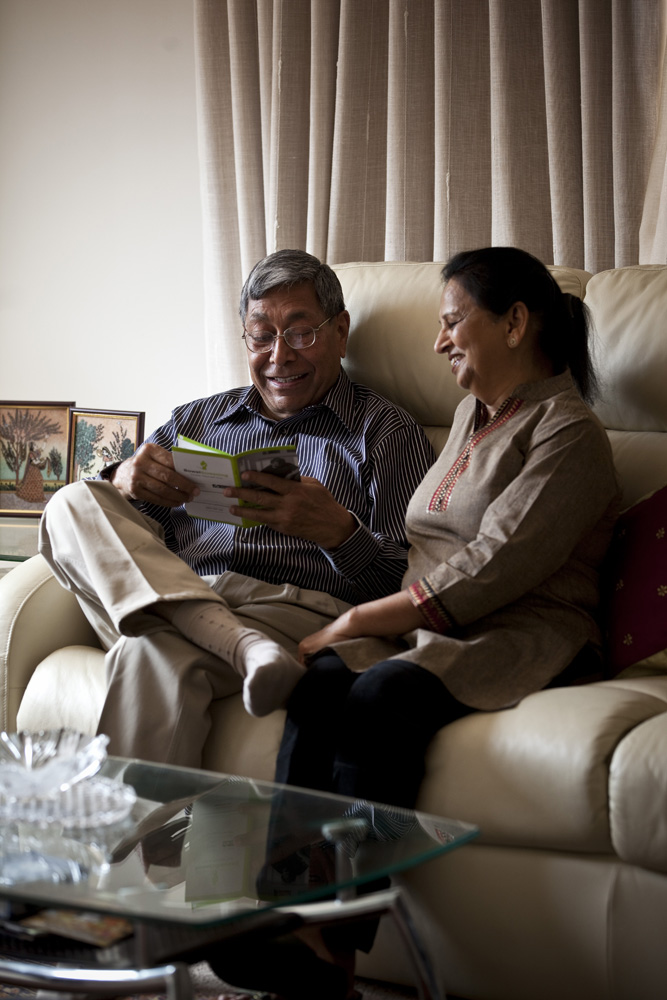Did you know that more people die because of bowel cancer than in road accidents in New Zealand?
Bowel cancer is the second most common cancer and the second leading cause of cancer death in New Zealand. More than 1200 New Zealanders die from bowel cancer each year – one of the highest per-capita mortality rates from this disease in the developed world.
With the second annual Bowel Cancer Awareness Week beginning today (4 June), New Zealand’s Waitemata District Health Board (DHB) is offering free bowel screening to eligible people aged 50-74 to check for early signs of bowel cancer.
Eligible people who live in the Waitemata DHB area will automatically be invited to participate.
The DHB launched the BowelScreening pilot in October 2011, and today about 1400 test kits are sent to eligible people every week.

Waitemata DHB is the only DHB offering this programme in New Zealand, says says Eric Atwood, Senior Communications Advisor  for New Zealand’s Waitemata District Health Board. This four-year pilot is funded by the Ministry of Health.
Indians, or even Asians, represent a tiny proportion of people diagnosed with bowel cancer in New Zealand. Only 9 people of Indian descent were diagnosed of bowel cancer in 2009, compared to 2617 Europeans in 2001, according Ministry of Health figures released to The Global Indian magazine.
However, there is no reason to be complacent. One in two New Zealanders doesn’t know the symptoms of bowel cancer.
“The Indian community is an important part of our promotion efforts.”
Bowel cancer is a curable disease if detected early – there is a greater than 90% chance of long-term survival if it’s caught and treated at an early stage.
“One of the aims of this programme is to help reduce the mortality rate from the disease – and to make the programme as safe, effective and accessible to all participants as possible,” says Eric.
Bowel cancer can be fatal and one of the ways to survive is to “know the symptoms of bowel cancer”, says Mike Hulme-Moir, Colorectal Surgeon and Clinical Director for the Waitemata DHB BowelScreening Programme (BSP).
“Unfortunately, though, bowel cancer may be quite advanced by the time you get symptoms.
“Another way to beat it is to participate in the BowelScreening Programme, if you’re eligible.
Waitemata DHB residents aged 50-74 – more than 137,000 people – will be invited to participate.
“The people of Waitemata have been very receptive to screening, and we are getting good results from the programme so far.â€
Since its launch late last year, the BSP has tested more than 7500 returned screening kits and performed more than 300 colonoscopies on screening participants.
For further information on the Waitemata DHB BowelScreening programme, call the Coordination Centre on 0800 924 432.
What are the common signs and symptoms bowel cancer?
- Change in your bowel habit, for example: diarrhoea alternating with constipation, increased frequency of bowel motions
- Blood in your bowel motion
- Gradual weight loss or loss of appetite
These signs and symptoms may be caused by other conditions, but it is important to get them checked out by your doctor.
What can you do to maintain a healthy bowel and prevent bowel cancer?
- Eat a balanced diet with a variety of different foods – including fruit, vegetables and high-fibre foods
- Eat small, regular meals – don’t miss any meals
- Limit the amount of wheat-based, dairy-based, sugary and fatty foods you eat
- Chew well – break down each mouthful into small pieces
- Avoid eating large meals and fatty foods before bedtime
- Drink plenty of fluids throughout the day (6-8 glasses of water)
- Limit the amount of caffeine and alcohol you consume (2-4 units a day maximum)
- Don’t smoke – smoking is harmful to the bowel and causes many changes in the digestive system
- Exercise regularly, but not excessively – 30 minutes of moderate activity five times a week is sufficient

Leave a Reply